Excellent Methods of Making Your Home Solar Powered
Solar energy is a renewable and sustainable resource that can be used to power homes. It is an increasingly popular option due to its efficiency, affordability, and environmental benefits.
This article will discuss great methods to make your home solar powered by exploring the different types of photovoltaic systems available as well as their advantages and disadvantages.
Additionally, it will provide insight into how much electricity you can expect to generate from these systems and what benefits they present for homeowners.
Photovoltaic Systems And Their Benefits
The sun has long been an invaluable source of energy, providing warmth and light to the world in a sustainable manner.
Solar power is now becoming increasingly accessible as an alternative source of electricity for homes everywhere.
Photovoltaic systems are one such option that can help homeowners take advantage of this powerful natural resource – with great financial rewards too.
Photovoltaic systems use solar cells made from semiconductor materials to capture sunlight and convert it into usable electrical energy.
This process works by exciting electrons within the cell which then create direct current (DC) electricity; DC voltage is then converted into alternating current (AC) so that household appliances can be used normally.
The benefits associated with PV systems are numerous: they require low maintenance, produce no emissions or noise pollution, and generate free electricity over their lifetime – often 25 years or more!
In addition to these advantages, photovoltaics have become much more cost-effective in recent times due to improved technology and mass production.
As a result, installing a home solar system could offer significant savings on monthly utility bills while also helping reduce your carbon footprint.
With all these factors taken into account, evaluating one’s home suitability for PV installation may be the next logical step.
Evaluating Your Home’s Solar Suitability
In order to effectively assess the potential of a home for solar power, several key factors must be taken into consideration. Firstly, it is important to evaluate the amount of usable space available on the roof and determine whether there are any obstructions that could impede optimal sunlight exposure such as trees or nearby buildings.
Additionally, the orientation of the house relative to true north should be determined in order to gauge how much direct sun will hit the panels throughout different times of day and over various seasons. Finally, an evaluation should look at local sunshine levels by taking into account weather patterns and climate data from past years.
The next step when assessing suitability for solar power is understanding what kind of equipment is needed and how much energy can be generated with those systems. This requires calculating electrical needs based on daily usage habits as well as determining which types of solar panel configurations are best suited to meet those demands and provide long-term savings.
It also involves researching available incentives that might make installation more affordable along with considering other cost efficiencies like net metering or participation in community solar projects. Having evaluated all these components, one can then move forward to decide if installing solar power in their home makes financial sense.
With these considerations addressed ahead of time, transitioning into a discussion about solar installation and maintenance becomes straightforward.
Solar Installation And Maintenance
Installing solar panels is an important step in making your home energy independent. It requires a significant investment, but the long-term savings and environmental benefits make it worthwhile.
When deciding to install solar panels, you should consider:
- The size of your roof or other installation area
- Your available budget for equipment and installation costs
- Local regulations that may affect your setup
To ensure maximum efficiency from your system, you must properly maintain it by regularly cleaning off the panels, checking wiring connections, and monitoring its performance with a specialized power meter. Additionally, if any repairs are required you will need to contact a qualified professional.
Here are some tips on how to keep your solar power system running smoothly:
- Check all electrical systems twice per year
- Clean the photovoltaic cells every three months
- Inspect for damage after strong storms or heavy winds
By following these steps and utilizing proper maintenance techniques, homeowners can maximize their return on investment over time while continuing to benefit from renewable sources of energy. With this knowledge in hand, they can now calculate their estimated solar savings accurately.
Calculating Your Solar Savings
The potential savings of solar energy are considerable. According to the U.S. Department of Energy, an average-sized residential system could save a household up to $1,400 per year in electricity costs over its lifetime. This is why many homeowners across the nation have chosen to make their homes more sustainable through installing solar power systems.
Before making this decision however, it is important for homeowners to consider how much they can expect to save with a solar installation and what other benefits there may be such as tax credits or utility rebates.
Generally speaking, the cost of energy from rooftop solar panels is lower than traditional grid-supplied electricity rates and has been consistently decreasing over the past decade due to advancements in technology and increased competition among installers.
Homeowners should also bear in mind that while upfront costs may be high, these will often be offset by long-term savings on monthly electric bills and other incentives available in some states or localities like net metering policies or renewable energy certificates (RECs).
In order to estimate your personal savings with a home solar system, you must first calculate your total expected energy consumption over time and compare it against estimates provided by qualified installers who know about local incentives and regulations which can help you maximize your investment return.
With accurate information at hand, you’ll be able to get an idea of whether investing in solar power makes financial sense for your individual situation.
Moving forward into the next section we will look further at ways of maximizing your output when generating solar energy.
Maximizing Your Solar Energy Output
Solar energy is an increasingly popular source of renewable energy. To maximize the output of solar energy, several steps must be taken.
First, assessing your home’s current insulation levels can help you determine how much heat will be lost through walls and windows during colder months. Ensuring that all doors and windows are properly sealed with caulk or weather-stripping can prevent hot air from escaping in summer, and cold air from entering in winter.
Next, investing in some form of thermal mass such as masonry flooring inside a sunroom can absorb the sunlight and release it at night when temperatures drop outside. This helps to maintain comfortable interior temperatures without using additional electricity or heating systems.
Finally, installing quality photovoltaic panels on your roof is key for converting light into electrical power and adding value to your property. The number of panels required depends on factors like type, size and direction of installation – so make sure to do thorough research before making this investment.
- Research multiple types of photovoltaic cells available on the market
- Assess the amount of direct sunlight hitting the planned installation area
- Calculate total wattage needed based upon household usage needs
- Explore government incentives available for residential solar installations
- Calculate the estimated cost of the photovoltaic system.
Frequently Asked Questions
How Much Will It Cost To Install A Solar Panel System?
Solar panel systems can be a costly investment, with the average system costing between $12,000 – $15,000. This price is largely dependent on factors such as location and size of the project; however, many individuals find that going solar is an economically sound decision in the long run.
With government incentives and tax credits available for those who choose to install solar panels at their home, it may make sense for homeowners to take advantage of these resources in order to reduce upfront costs associated with solar energy installation.
Additionally, some states have net metering programs which enable homeowners to sell excess electricity generated by their system back into the grid. Ultimately, making decisions about installing solar power should be based upon careful calculations regarding cost-effectiveness over time.
Since solar energy is much more reliable, you can lower and even remove your electrical expense, raise your house’s value as well as contribute to a cleaner atmosphere, all at the same time.
What Type of Maintenance Is Required To Keep The Solar Panels Working Properly?
Solar panel systems require regular maintenance in order to ensure they remain operational.
This includes regularly checking the panels and wiring for potential damage, cleaning debris from the surface of the panel, inspecting equipment involved like inverters or batteries, and ensuring no vegetation is blocking sunlight access.
In addition, system owners should monitor power output on a periodic basis to ensure it stays within expected parameters.
Although solar panel maintenance does not need to be done frequently, it is essential for guaranteeing optimal performance over the lifetime of your system.
How Long Does It Take To Install A Solar Panel System?
The installation process of a solar panel system varies depending on the size and complexity. Generally, large-scale systems with multiple components such as mounting racks, inverters, energy storage devices, etc., can take up to several months while smaller systems typically require less time.
It is essential to ensure that all necessary permits have been obtained prior to beginning the installation process in order to avoid any delays or additional costs.
Professional installers should be consulted for larger projects to guarantee an effective and efficient outcome.
Are There Any Government Incentives To Help With The Cost Of Installing A Solar Panel System?
The government offers a variety of incentives to homeowners looking to install solar panels, providing an opportunity for people to save money on the cost of installation.
Tax credits and rebates can cover up to 60% or more of the total system costs in some areas, greatly reducing the overall financial burden associated with solar panel systems.
Such incentives are often available at both federal and state levels, making it worth researching different programs that may be applicable in your area.
Are Solar Panels Suitable For All Types Of Homes?
Solar panels can be suitable for a variety of home types, depending on several factors such as the type and size of roof available, accessibility to direct sunlight throughout the day, and local weather conditions among other considerations.
While solar panel systems are increasingly popular in residential homes across the US due to their cost-saving potentials over time, each individual home must be assessed before installation to determine if it is a viable option.
Conclusion
A solar panel system is a cost-effective, efficient way to power your home. With the right maintenance and incentives, homeowners can enjoy long-term savings while reducing their environmental impact.
Expert installation ensures that the panels are correctly fitted and working at optimal levels. Additionally, solar panels are suitable for all types of homes – whether you live in an apartment complex or single family residence.
By harnessing the sun’s energy, homeowners can make substantial strides towards achieving sustainability goals without compromising budget or comfort. Investing in a solar panel system provides years of reliable performance with minimal upkeep requirements – making it an attractive option for eco-conscious households everywhere.
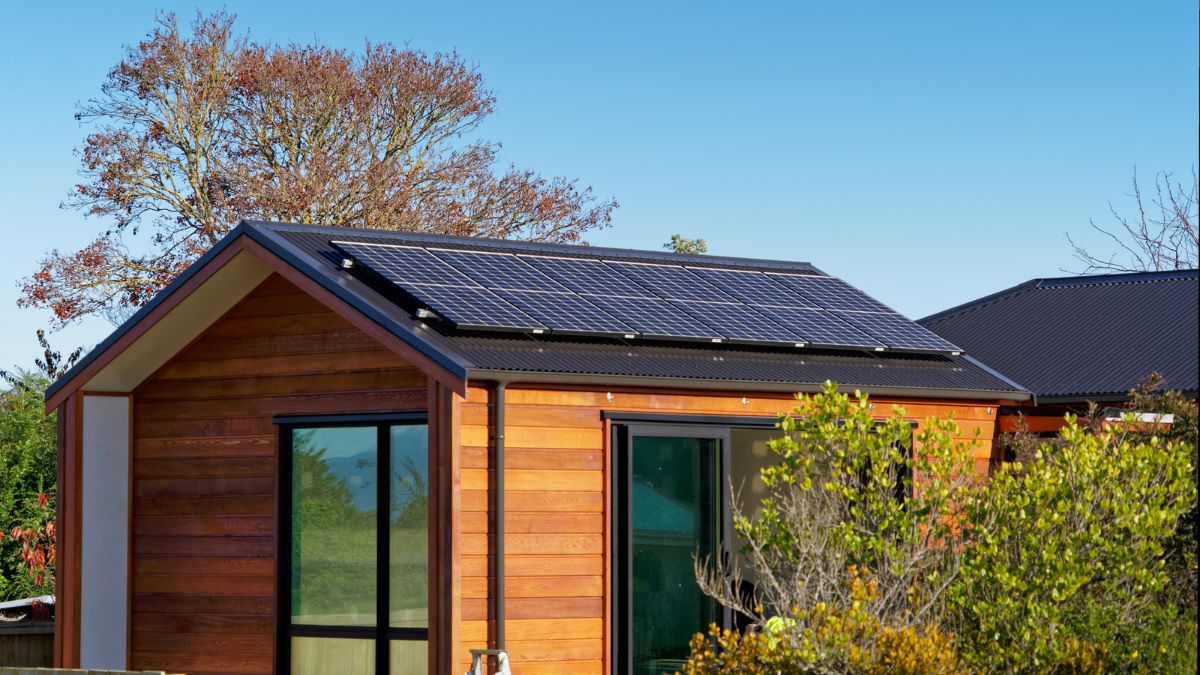

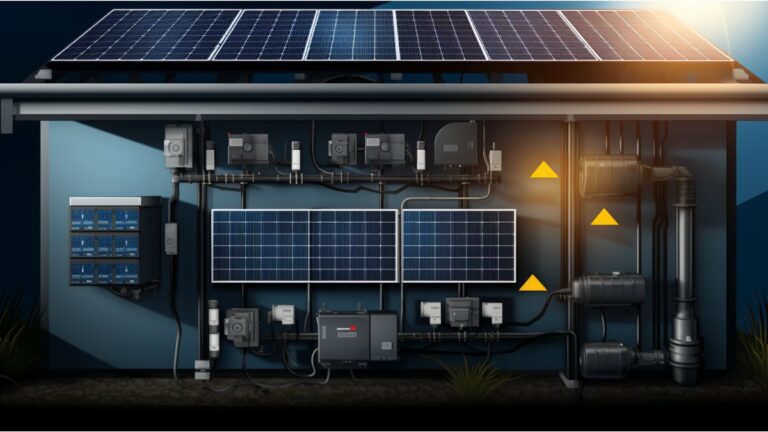
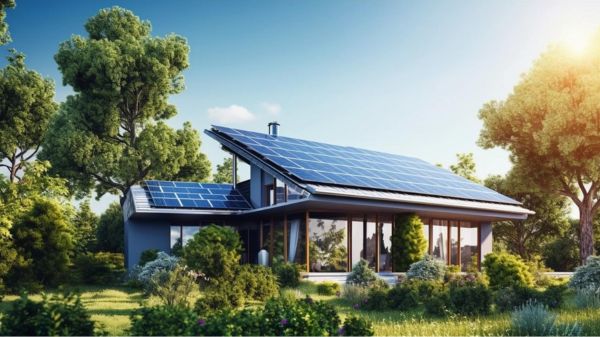
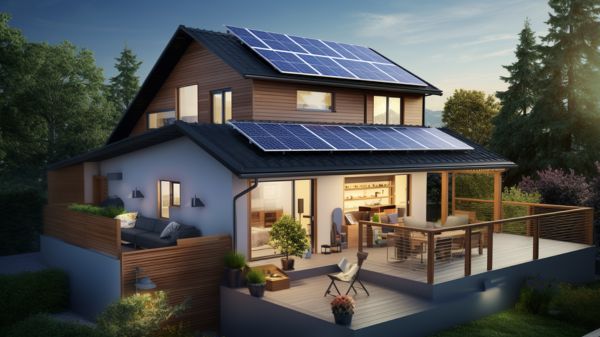
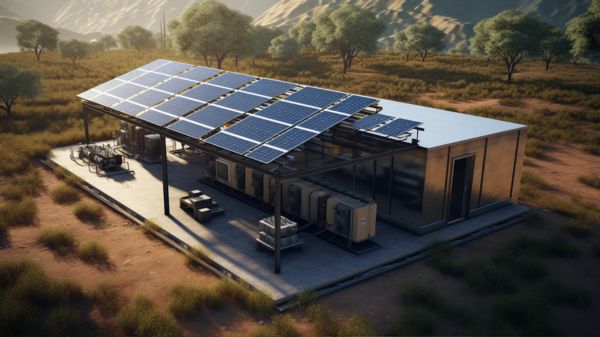
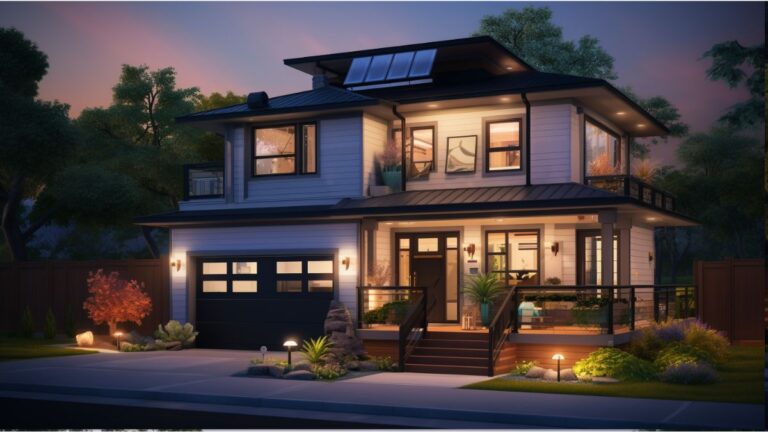
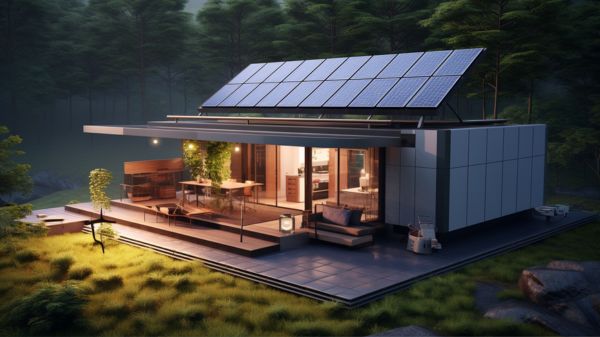
2 Comments
Comments are closed.